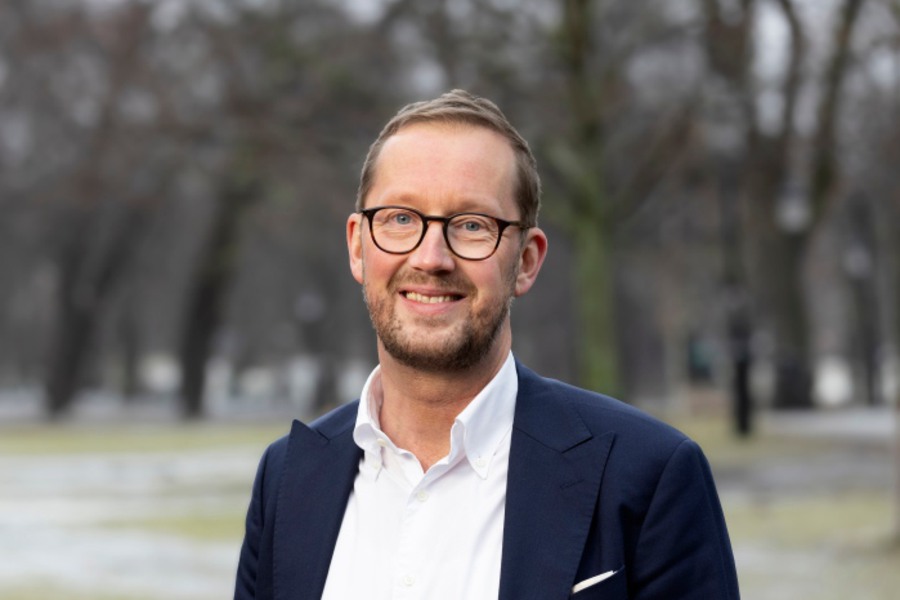
Forgotten technology for fossil-free hydrogen
One important option that is rarely mentioned in the ongoing search for economical and efficient technologies to reduce CO2 emissions is the production of hydrogen from forest biomass. It is now a technology that researchers are highlighting in the project "Costs of reducing greenhouse gas emissions from road and air transport with biofuels and electrofuels" funded by the Swedish Energy Agency's Bio+ program.
- Electrolysis allows us to produce fossil-free hydrogen on a large scale, but so does biomass gasification, which has been almost completely overlooked until now. We know that the technology has several attractive technical and environmental advantages, such as its robustness and the possibility of negative carbon dioxide emissions if carbon capture and storage (CCS) is applied. The fact that the technology also looks economically promising, it is less known and we want to highlight that, says Joakim Lundgren, Professor of Energy Engineering at Luleå University of Technology and Deputy Director of the Center for Hydrogen Energy Systems Sweden, CH2ESS at Luleå University of Technology, who participated in the project.
Production cost more than competitive
The project has calculated the costs of reducing carbon dioxide emissions with renewable fuels, including hydrogen and aviation fuels produced via a wide range of technology pathways. The project is led by the Swedish Environmental Research Institute IVL, with RISE and Luleå University of Technology as project partners. Recently, Joakim Lundgren presented parts of the report's results, as well as results from the project Sustainable Hydrogen - Potential for Bothnia Gulf Cluster, H2SUS on bio-based hydrogen, a collaboration between Luleå University of Technology and the University of Oulu on bio-based hydrogen with funding from Interreg Aurora, at a large international workshop organized by IEA Bioenergy and the French research funder ADEME in Lyon.
- "We show that if hydrogen is produced via biomass gasification and the carbon dioxide is captured and stored, the production cost can be more than competitive with electrolysis-based hydrogen, partly due to the value of negative CO2 emissions," he says.
There are also strong indications that the CO2 abatement cost will be lower for hydrogen produced via biomass gasification with CCS than the abatement cost for electrolysis-based hydrogen in the future.
Interest in gasification technology higher than ever
Biomass gasification is a technology where world-leading research and development has been conducted in Sweden and at Luleå University of Technology for several decades. The technology has so far been applied on a limited industrial scale. The reasons are partly that the technology has not been tested, partly that the markets for various applications have changed significantly several times over time and that the support for the introduction of new technology has been too weak. Interest in gasification technology has been high since the mid-1970s, but is now perhaps greater than ever. This is largely explained by the characteristics of the technology; fuel flexibility, wide range of end products, and that it can be applied via adaptations in many areas such as replacement of fossil fuels in industry, efficient cogeneration process in the district heating sector and for the production of renewable fuels, bio-methane or fossil-free hydrogen.
Today, there are various gasification technologies that can be introduced on an industrial scale in the short term and that can meet industrial and societal needs in the future fossil-free energy system.
The technologies marry well with each other
Joakim Lundgren is by no means saying that biomass gasification is the 'silver bullet', but the technology to produce fossil-free hydrogen deserves much more attention, especially in forest countries like Sweden and Finland. Moreover, there are hugely exciting potential synergies between biomass gasification and electrolysis.
- I am convinced that the emerging hydrogen economy marries very well with the bioeconomy," he says.
Contact
Joakim Lundgren
- Professor
- 0920-491307
- joakim.lundgren@ltu.se
- Joakim Lundgren
Updated:
